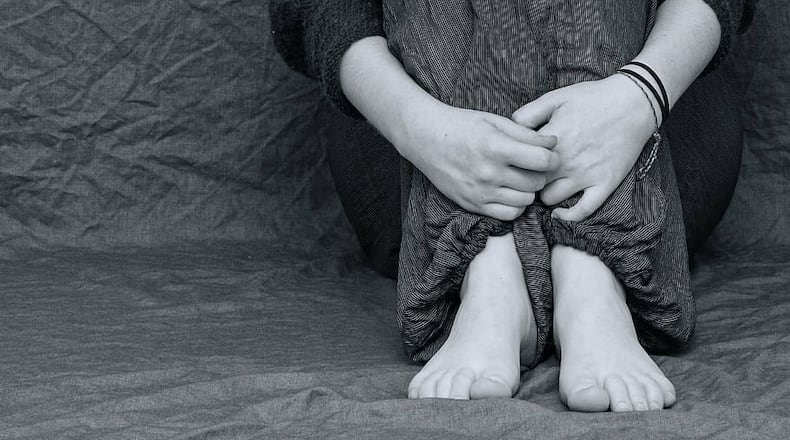For many, Georgia's unprecedented stay-at-home order meant homeschooling children and working an eight-hour day from a living room to try to protect themselves from an invisible threat, the highly contagious COVID-19.
However, for victims and survivors of domestic violence, an increasing amount of time spent at home this month meant protection from one threat — but more exposure to another.
» AJC COMPLETE COVERAGE: Coronavirus in Georgia
“Survivors are now sheltering in place with people who are abusive,” Jan Christiansen said, “and they can’t find sanctuary at work or school or get some respite.”
Christiansen, the executive director of the Georgia Coalition Against Domestic Violence, said the novel virus has created a rubicon for advocates who are now dealing with increased risks for victims — at homes and in shelters.
There are no definitive figures showing the impact the shelter-in-place order had on domestic violence across the state, according to the Georgia Commission on Family Violence. That’s due to limitations on gathering numbers on such a large scale in real time.
But the Atlanta Police Department, for example, reported 58% more domestic violence calls in its jurisdiction between March 8 and April 23 compared to the same time frame last year.
There was a 79% increase in domestic violence cases last month compared to March 2019, according to APD data. Though the shelter-in-place had not taken effect during that time, many people were already experiencing drastic life changes caused by COVID-19.
In the span of a week, the number of coronavirus cases increased 472%, school systems began closing and 12,140 unemployment claims were filed.
“I don’t think we foresaw how serious it would become, and so quickly,” said April Ross, the Georgia Commission on Family Violence’s executive director.
Ross said the anxiety in Georgia households, coupled with straining resources, is likely what first contributed to an increase in domestic incidents.
“Abused people are in abusive relationships, and some of that abuse is exacerbated by financial instability,” she said.
Then there’s the financial strain on government resources, which get stressed thin during difficult times. Christiansen said shelters across the state also have had to balance how to house victims while practicing social distancing guidelines.
“Often, they would have a large room with four to six beds,” she said. “Now, they have started having one family or so in a room.”
According to Ross, some shelters temporarily closed their doors in order to prevent the virus from being brought in with a newly admitted person. Christiansen said the GCADV began placing victims in hotels as a sort of “quarantine” to limit risks to other residents and staff.
“Our programs started to figure things out really quickly,” Christensen said.
The Georgia Criminal Justice Coordinating Council on April 8 approved $3 million in funds to try to alleviate some of the pressure on shelters. The funds were allocated to "meet the emergency needs of victims caused by the COVID-19 pandemic" and were given to sites that served victims of domestic violence, sexual assault and child abuse.
“I don’t know how far that will go across the state,” Ross acknowledged.
The problems caused by the virus, Ross said, will last long after the restrictions have lifted. “The financial impact of this pandemic is going to last for months.”
Ross said her group is still working to preempt some of the issues that will inevitably come up while the state tries to recover from the virus’ impact. The organization has made a request to the governor’s office to allocate additional emergency funds for family violence victims.
“A crisis doesn’t cause domestic violence,” Christiansen said. “Domestic violence is caused by power and control.”
All of GCADV’s 56 member shelters have remained open throughout the governor’s stay-at-home order, and its hotline is actively receiving calls. Anyone seeking more information can call 1-800-33-HAVEN.
“In spite of being sheltered in place, all the help is still available,” Ross said.
In other news:
Credit: AJC
About the Author
Keep Reading
The Latest
Featured




